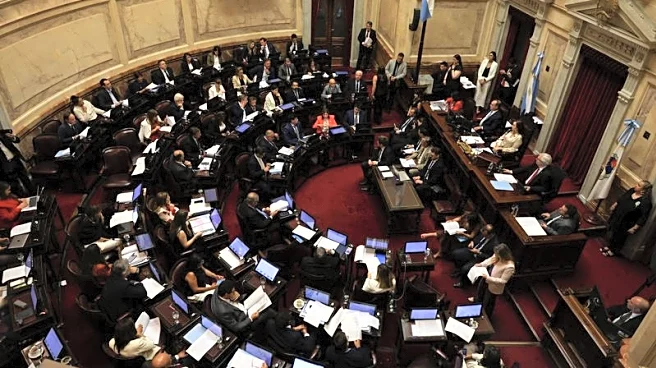What's Happening?
Keith Siegel, a former Israeli-American hostage, has publicly thanked President Trump for securing his release from Hamas captivity. Siegel, who spent 484 days in Hamas tunnels, is optimistic about the current ceasefire deal aimed at freeing the remaining 48 hostages. He recalls the harsh conditions and torture he endured, emphasizing the importance of the ceasefire deal to prevent further suffering. Siegel's gratitude highlights the personal impact of diplomatic efforts and the ongoing mission to secure the release of other hostages.
Why It's Important?
Siegel's release and his gratitude towards President Trump underscore the human aspect of international diplomacy and the significance of successful negotiations in hostage situations. The current ceasefire deal, if successful, could save lives and alleviate the humanitarian crisis in Gaza. The situation highlights the U.S.'s role in mediating complex international conflicts and the potential for diplomatic efforts to achieve tangible humanitarian outcomes. The ongoing negotiations reflect the challenges of balancing immediate humanitarian needs with broader geopolitical strategies.
What's Next?
The focus remains on finalizing the ceasefire agreement and ensuring the safe release of the remaining hostages. The outcome of these negotiations will likely impact future diplomatic relations and security policies in the region. Stakeholders, including political leaders and civil society groups, will closely monitor the progress and results, influencing subsequent actions and strategies.
Beyond the Headlines
The negotiations raise ethical considerations about the trade-offs between humanitarian concerns and political strategies. The involvement of multiple countries in the talks underscores the global interest in resolving the conflict and the challenges of achieving consensus among diverse stakeholders.










